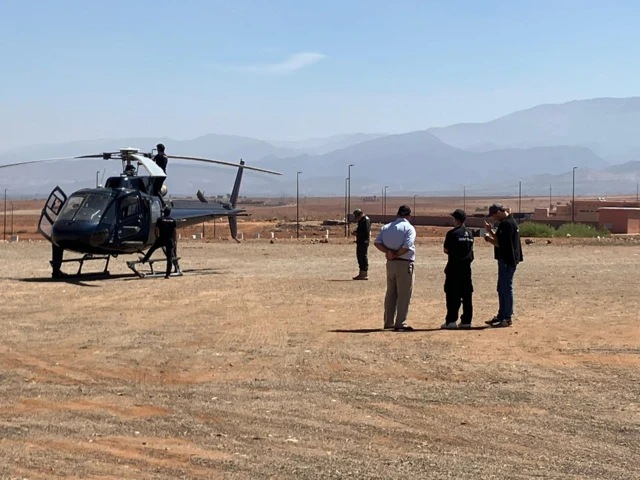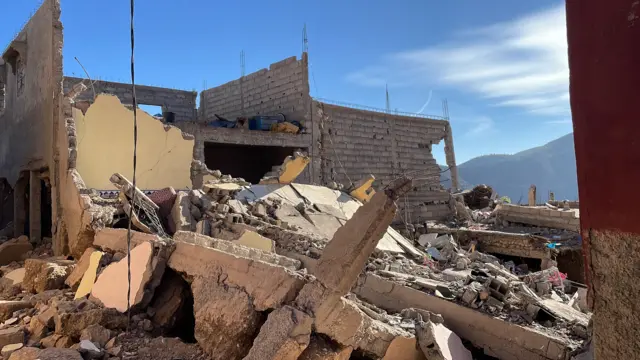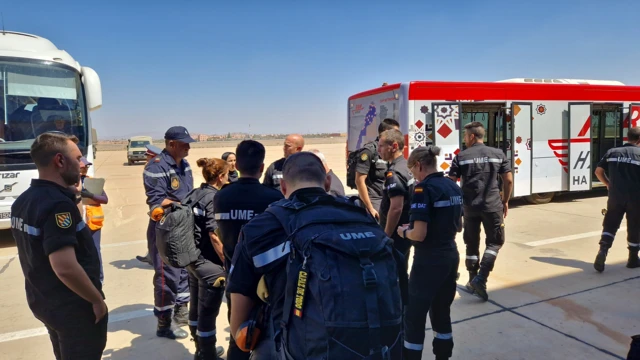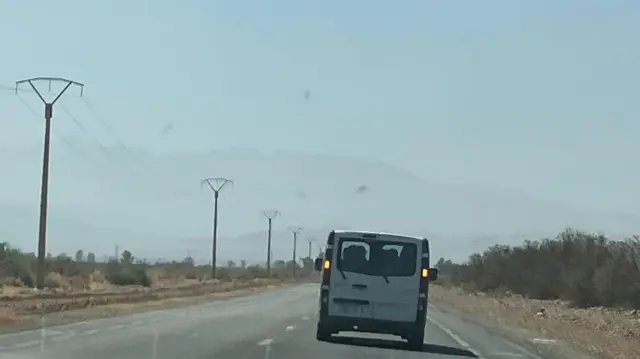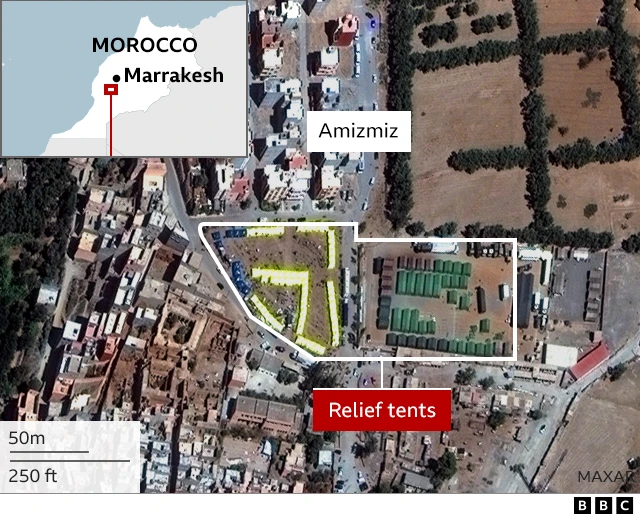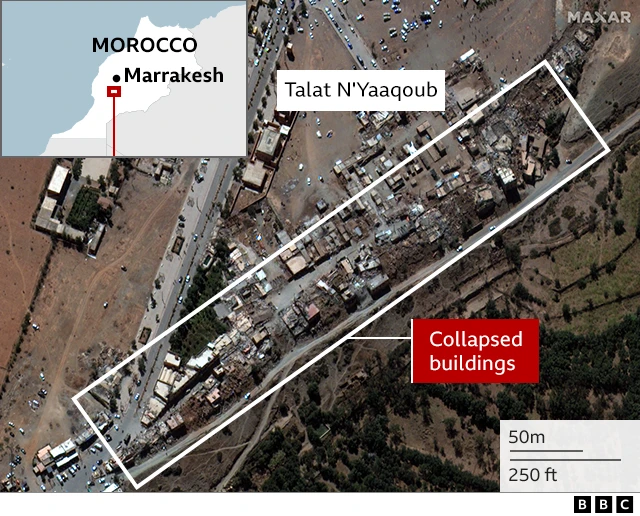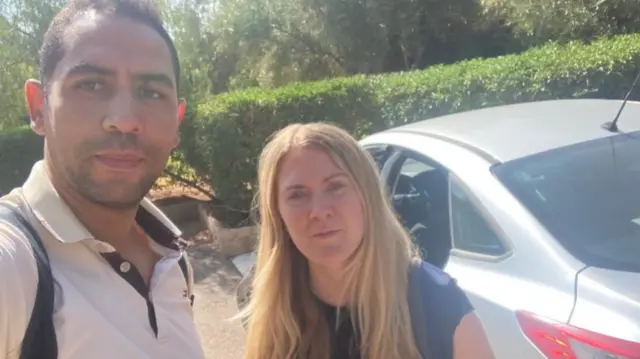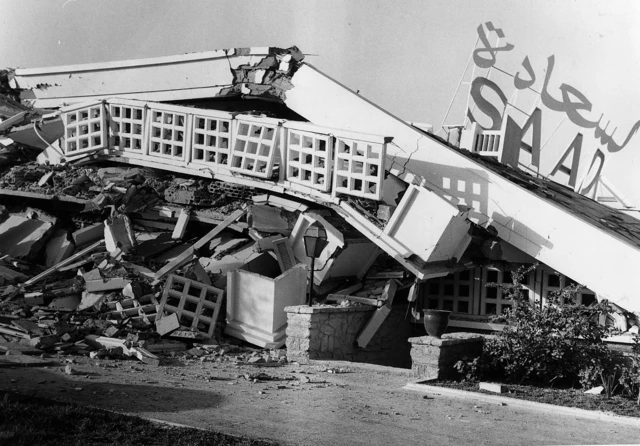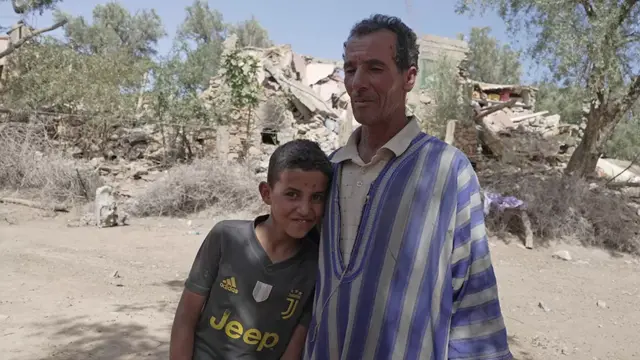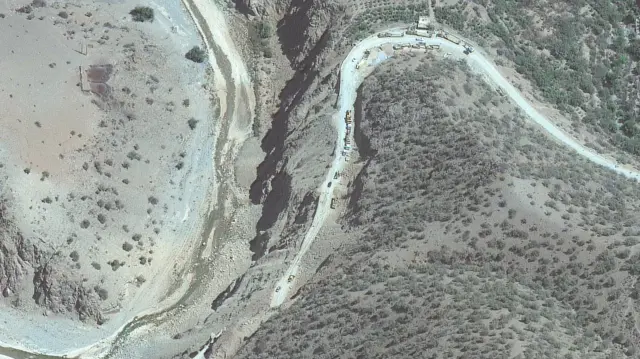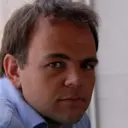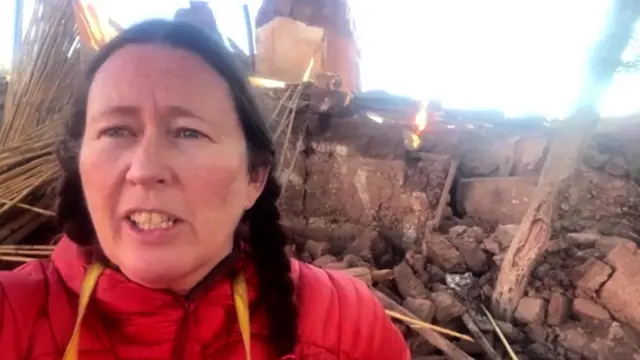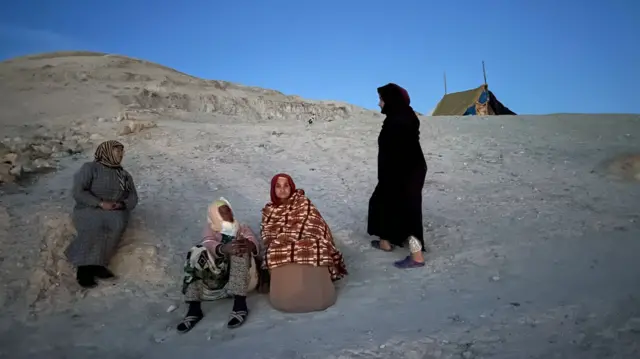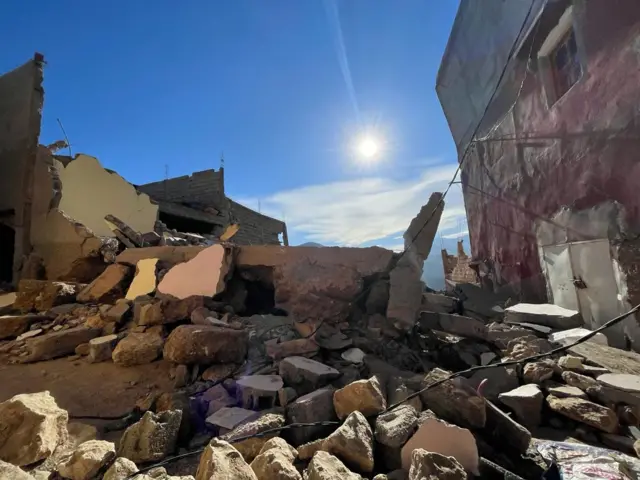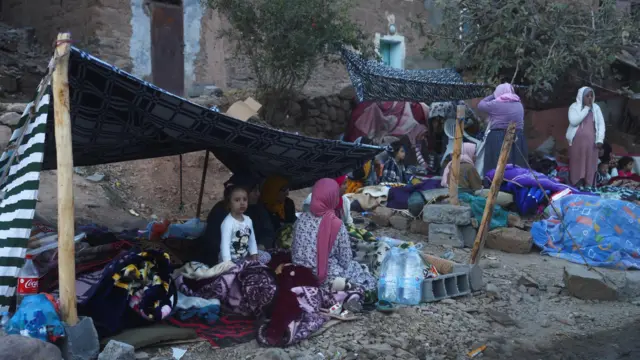Delivering food and water by helicopterpublished at 13:25 BST 11 September 2023
 Alice Cuddy
Alice Cuddy
Travelling to quake-hit village of Ouirgane
We’ve just stopped at the side of the road where people are gathered taking photos of a helicopter.
Representatives of World Central Kitchen tell me they are using the helicopter to deliver food and water to hard-to-reach communities in the mountains.
They have visited four villages so far, distributing items like bread, fruit and milk, and say they will continue making deliveries constantly throughout the day.
